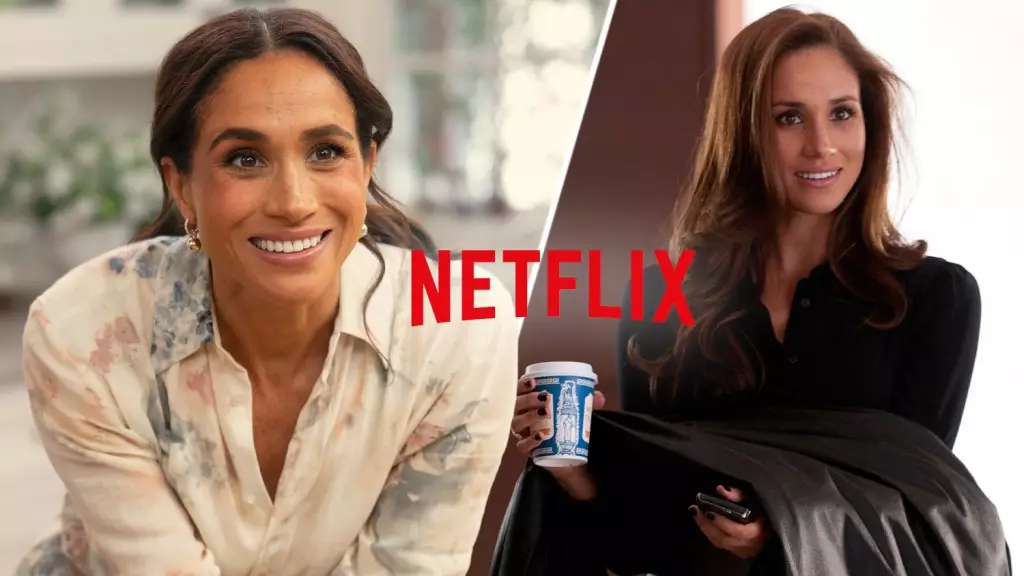Meghan Markle’s celebrity status, fueled by tabloid headlines and royal intrigue, has created an aura of fascination that many assume would naturally translate into strong viewership for her media projects. However, a closer analysis reveals a stark disconnect between her media allure and actual audience engagement, especially when it comes to her Netflix offerings. Despite being a constant media fixture, Meghan’s latest series, With Love, Meghan, ranks shockingly low—hovering at just 5.3 million views since its debut. This indicates that her existing fame doesn’t automatically generate sustained interest or loyalty among viewers, challenging the assumption that celebrity prominence guarantees digital success.
Digital Audience Dynamics and Loyalty
The data suggests a clear pattern: audiences are far more invested in her previous work than in her recent ventures. The enduring popularity of her role in Suits, which outperforms her Netflix series across multiple seasons, underscores that viewers remain loyal to her character, not necessarily her off-screen persona. This loyalty appears deeply rooted in nostalgia and entertainment value. When transitioning to her more personal, lifestyle-focused content, the enthusiasm visibly wanes. The fact that With Love, Meghan failed to make even the Netflix Top 10 shows that viewers are selective and perhaps skeptical about celebrity-led lifestyle programming, especially when seemingly disconnected from genuine storytelling or substance.
The Power of Established Brand Trust
In contrast to her new show’s failure to capture wide attention, Meghan’s earlier projects—such as her role in Suits—continue to draw significant interest. This highlights an important insight: established entertainment brands with built-in trust and familiarity outperform new ventures that lack history. Meghan’s transition from actor to media personality seems hindered by a lack of perceived authenticity in her current projects. Viewers may be hesitant to connect with her new content, perceiving it as superficial or overly curated, which undermines its potential impact. The underwhelming numbers for her Netflix series serve as a reminder that personal branding, no matter how prominent in tabloids, does not automatically translate into meaningful viewer engagement in the digital age.
Misguided Expectations of Celebrity Power
Many industry advocates and observers tend to overestimate the influence of celebrity in the digital content arena. Meghan Markle’s case exemplifies that traditional celebrity status, especially when rooted in royal or tabloid fame, does not guarantee success in a landscape driven by authenticity, relatability, and compelling storytelling. Her Netflix series, despite renewal, received minimal attention, illustrating that modern audiences crave genuine connections and substantive content more than star power alone. This discrepancy between expectation and reality underscores the importance of understanding audience preferences and the limits of celebrity influence in the era of streaming.
Meghan Markle’s media ventures highlight a sobering reality: fame alone is insufficient to secure lasting engagement. Her experience betrays the myth that high-profile figures inherently command digital audiences. Authenticity, content quality, and established trust seem to be far more vital than celebrity status. As her projects continue to underperform, it becomes evident that even the most media-savvy personalities must adapt to a new reality—one where digital resonance is earned, not assumed.

